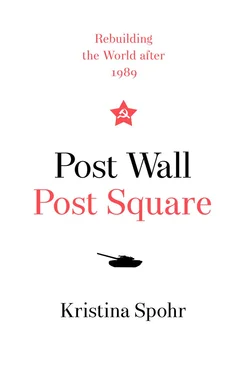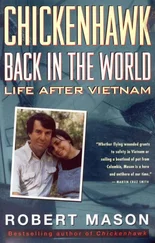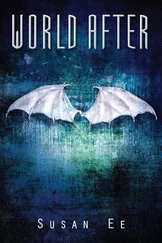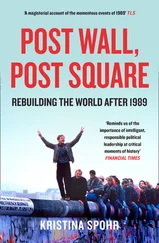*
Mikhail Sergeyevich Gorbachev was not a ‘normal’ Soviet leader. Born in 1931 in Privolnoye, a small village near Stavropol in the north Caucasus, he grew up witnessing his family’s suffering under Stalin’s collectivisation drive and later the Great Purge. When Gorbachev was ten, his father was drafted into the army and did not return for five years. Privolnoye was spared destruction during the Great Patriotic War but Stavropol was occupied by the Germans for five months in 1942–3, so Gorbachev experienced the ravages of war close-up and did not forget. Academically gifted and interested in politics, he shone at school and was cultivated from an early age by the local leaders of the Communist Party. Thanks to their patronage, he was sent to the prestigious Moscow State University (MGU) to study law; in order to gain entry he wrote an essay entitled ‘Stalin is our battle glory, Stalin is the Flight of our Youth’ – evidence that his political views then were still ‘straight Stalinist, like everyone else at the time’, as his best friend at university put it. At a third-year ball he met Raisa Maximovna Titarenko, a chic and clever philosophy student. A year later, in 1954, they were married.
Sent back to Stavropol, Gorbachev rose steadily through the Soviet nomenklatura system in the usual way, while Raisa taught Marxism at the local polytechnic and studied for a PhD on the peasantry in the region’s collective farms. Gorbachev’s youthful Stalinism was shaken by First Secretary Nikita Khrushchev’s 1956 ‘secret speech’ which denounced his predecessor Stalin’s monstrous crimes and laid bare the endemic problems of Russian industry and agriculture. Henceforth Gorbachev, though continuing to believe faithfully in communist ideology, recognised how flawed it had become in Soviet practice. Through his travels with Raisa to France, Italy and Sweden from the 1960s onwards, he encountered the West and glimpsed an alternative future. Meanwhile, his political career accelerated. In 1967, he became the regional party boss, aged only thirty-five; twelve years later he was put in charge of Soviet agriculture, moving to the centre of power in Moscow, while Raisa was given a teaching post at MGU. One of his leading patrons was KGB chief Yuri Andropov, who succeeded Leonid Brezhnev as general secretary in November 1982. [5]
Although nearing fifty, Gorbachev was almost a spring chicken by the standards of the Soviet Politburo. Andropov, nearly seventeen years his senior, suffered from acute kidney failure and died in February 1984. His successor Konstantin Chernenko was two decades senior to Gorbachev: afflicted with heart and lung problems, he expired in March 1985. Finally the old men of the Kremlin decided to jump a generation and opt for Gorbachev. Justifying to Raisa why he was taking the job, Mikhail said ‘all those years … it’s been impossible to achieve anything substantial, anything on a large scale. It’s like coming up against a wall. But life demands it. We can’t go on like this.’ [6]Yet what should be done instead was much harder to determine. First Gorbachev tried an anti-alcohol campaign; after that failed he looked for deeper remedies and new slogans, espousing first ‘uskorenie’ (acceleration), then ‘perestroika’ (restructuring) and ‘glasnost’ (transparency). But these did not entail revolutionary changes: Gorbachev was still a party man and wanted to re-form the Soviet system to make it more viable and competitive: his motto was ‘Back to Lenin’.
His frequent invocations of Lenin were in part to justify to the party his policies of innovation and restructuring, which so sharply deviated from the Stalinist and Brezhnevite practice that in Gorbachev’s opinion had perverted ‘socialism’. But more than that, he identified his own view of fundamental reform of the Soviet system under the auspices of perestroika with Lenin’s 1920s ideas of a New Economic Policy: a guided and limited system of free enterprise. His goal at this stage was not a turn to capitalism or to social democracy. For him Lenin remained the source of legitimacy for policy changes within the Communist Party of the Soviet Union (CPSU) – the pure font of Soviet doctrine. He wanted to restructure the traditional Soviet sociopolitical order ‘within the system’, which is why under glasnost he also advocated ‘socialist pluralism’ ahead of full ‘political pluralism’ – all this to reinvigorate the Soviet Union. [7]
To achieve reform and rejuvenation, Gorbachev had to reduce the burden of the military-industrial complex on the Soviet economy, intensified during the 1980s by the war in Afghanistan and the spiralling arms race with America.
To be sure, the Soviet command economy was performing poorly simply for structural reasons – a fact masked by the global oil price rise of the 1970s and the country’s vast Siberian reserves which fuelled a GDP growth rate of 2–3.5% between 1971 and 1980. But when the oil price dropped in the next decade, national income fell sharply. Indeed, in 1980–5 the USSR found itself at near zero growth. The increasing dissatisfaction of Soviet consumers was exacerbated by declining living standards and limited access to high-tech civilian goods. This was due in part to the inflexibility of the planned economy and the lack of industrial modernisation, but the root problem was that perhaps up to a quarter of GDP was being gobbled up by the military sector to the detriment of the civilian production. [8]
In order to galvanise the economy at home while slowly opening it up to the outside world, Gorbachev needed to foster a stable international environment and also to address the USSR’s ‘imperial overstretch’ in Eastern Europe and the developing world. This meant reducing US hostility (disengaging from the arms race) and making compromises in the Third World (including ideological recognition of the right to self-determination). So domestic policy was inextricably bound up with foreign policy. Seeking a less confrontational relationship with the United States, Gorbachev was keen to talk with his American opposite number. [9]
At first glance, however, US president Ronald Reagan seemed an unlikely partner. Born in 1911, and so the same age as the man Gorbachev had just replaced, Reagan was a vehement anti-communist who had intensified the arms race once he came to power in 1981. He was notorious for his denunciation of the USSR as an ‘evil empire’ and for his prediction that the ‘march of freedom and democracy’ would ‘leave Marxism–Leninism on the ash heap of history’. [10]This all-out ideological competition, he believed, justified the military build-up of his early years. But there was another side to Reagan – the would-be peacemaker, who saw military power as a basis for diplomacy to secure ‘peace through strength’. Even more surprising, this hard-headed realist cherished a utopian belief in a nuclear-free world. [11]
During his first term, Reagan had been unable to initiate dialogue with the sick old men of the Kremlin. But with the accession of Gorbachev, not merely dialogue but negotiation suddenly became possible. Over the course of four summits between Geneva in November 1985 and Moscow in May/June 1988 the discussions were often heated but the two leaders gradually forged a relationship based on personal trust and even affection. Gorbachev’s radical nuclear arms-reduction proposals at Reykjavik in October 1986 – six months after the horrendous Chernobyl accident – almost carried Reagan along with him, to the horror of some die-hard advisers. By the time of their Washington meeting in December 1987 they had moved on to first-name terms. There was also substance in the new relationship. At Washington, Reagan and Gorbachev signed away a whole category of nuclear weapons in the Intermediate Nuclear Forces Treaty – the first time the superpowers had ever agreed to reduce their nuclear arsenals. Here was a significant step in defusing the Cold War, making it less likely that a nuclear conflict would break out. Atomic scientists put back their celebrated ‘Doomsday Clock’ to six minutes before midnight, instead of three. And on 31 May 1988, when Reagan was asked in Red Square whether he still felt the USSR was an ‘evil empire’, he replied ‘I was talking about another time, another era.’ [12]
Читать дальше












